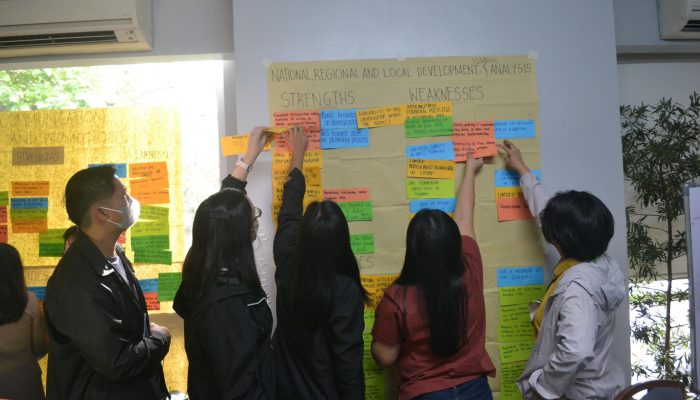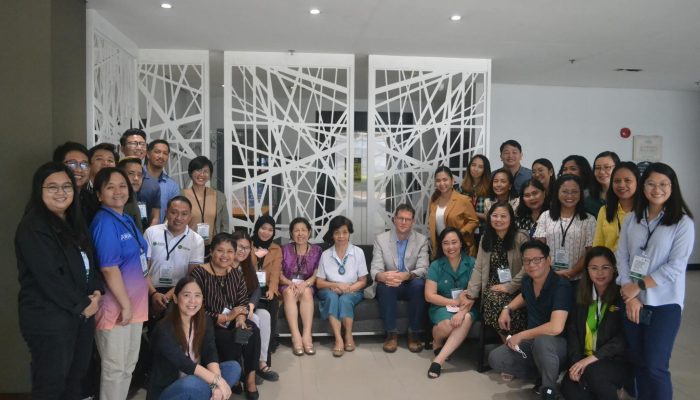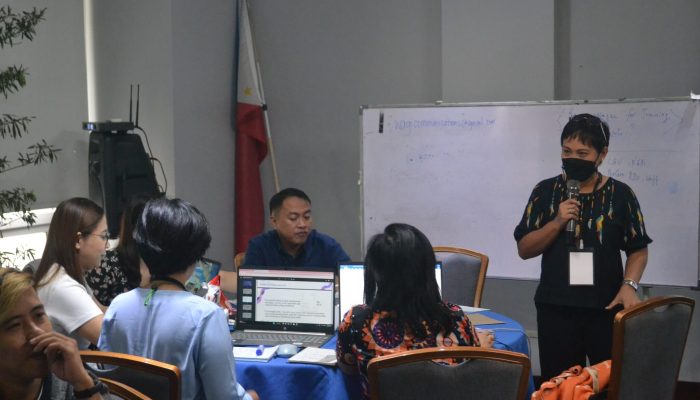Recognizing code red for humanity amidst rising global temperatures and continuous environmental degradation that drive or trap populations, Deutsche Gesellschaft für Internationale Zusammenarbeit (GIZ) commissioned Miriam College-Women and Gender Institute (WAGI) to organize the Training of Trainors Workshop on Human Mobility in the Context of Climate Change (HMCCC) in the Philippines for the Commission on Population and Development (POPCOM).
The 5-day training aims for POPCOM members to adopt their learnings on HMCCC to develop capacity development measures in localizing the said topic. 24 trainees representing POPCOM’s regional offices and selected Sub-committee on Internal Migration (SCIM) participated in the event at Microtel Acropolis, Quezon City from November 14-18, 2022. The training featured three (3) modules on HMCC presented by Resource Speakers, Prof. Aurora Javate de Dios (Migration/Human Mobility Specialist) and Dr. Louie Tesalona-Parungao (Climate Change Adaptation Specialist) of Miriam College.
Key highlights of the sessions include an analysis of the strengths, weaknesses, threats and opportunities of POPCOM’s areas of work in adopting HMCCC as a gender responsive adaptation strategy and the participants’ presentation of action plans with measurable initiatives to localize HMCCC for one to six years. Part of their plans include: 1) The Central Office (CO) to improve the competencies of local government agencies in developing a ladderized capacity development intervention to staff (lobbying, policy development & advocacy, gender and migration, partnership strategies) 2) To strengthen their skills in lobbying for HMCCC on Year 1; 3) Identify and conduct intermediate level training on HMCCC including policy development & advocacy, 3) Develop partnership strategies to strengthen the skills of Regional Office (RO) staff on Year 3 and; 4) Efficiently utilize the technical skills of personnel from the ROs and CO in delivering HMCCC policy intervention (legislations, circulars, etc.) and advocacy at the national and regional level on Year 6.









